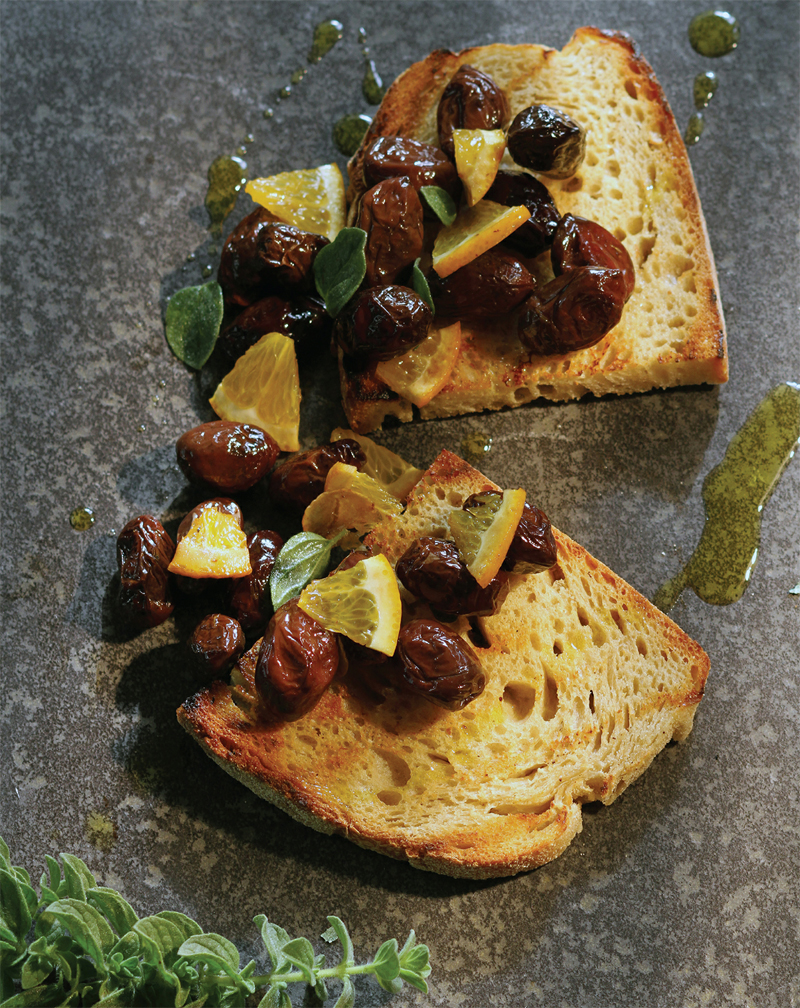 During the height of the first financial crisis in Greece, Greeks used to say, not altogether in jest, that “at least we have olives.” Olives, one of nature’s greatest superfoods, have always been an integral part of the Greek table. Ironically, with the exception of breads and sauces to which olives might be added, there are very few traditional Greek recipes calling for olives. Mostly, olives are just there, ever present on the table during every meal of the day. They are also the country’s number one agricultural export. This recipe is one of the few in which olives are featured prominently. Pan-fried or pan-grilled olives are a popular quick meze in many parts of Greece where table olives are cultivated.
During the height of the first financial crisis in Greece, Greeks used to say, not altogether in jest, that “at least we have olives.” Olives, one of nature’s greatest superfoods, have always been an integral part of the Greek table. Ironically, with the exception of breads and sauces to which olives might be added, there are very few traditional Greek recipes calling for olives. Mostly, olives are just there, ever present on the table during every meal of the day. They are also the country’s number one agricultural export. This recipe is one of the few in which olives are featured prominently. Pan-fried or pan-grilled olives are a popular quick meze in many parts of Greece where table olives are cultivated.
Of all the table olive varieties in Greece, the ones called “raisin olives,” which mature on the tree until they are wrinkled but still retain their meaty texture, are best for this dish. Wrinkled black olives are generally less salty than brined olives, and the oiliness inherent in their flesh makes them most suitable for sautéing.
Ingredients
- ½ small orange, preferably organic
- 2 tablespoons extra-virgin Greek olive oil
- 2 cups (310 g) wrinkled black Greek olives, preferably either Thassos or Halkidiki
- 1 large garlic clove, cut into very thin slivers
- Scant 1 teaspoon dried Greek oregano, or 2 teaspoons chopped fresh oregano leaves
- Keep the peel on the orange and cut the orange into 3 wedges. Cut each wedge into small triangular slices, about ⅛ inch (3 mm) thick.
- In a heavy skillet or stovetop grill pan, heat the olive oil over medium heat. Add the olives and orange wedges to the pan and shake the pan back and forth to combine them. Stir in the garlic.
- Continue to shake the pan back and forth or gently stir for about 5 minutes, until the olives are warmed through, the garlic is soft and shiny, and the orange slices are slightly wilted. Stir in the oregano and transfer to a bowl. Serve.
